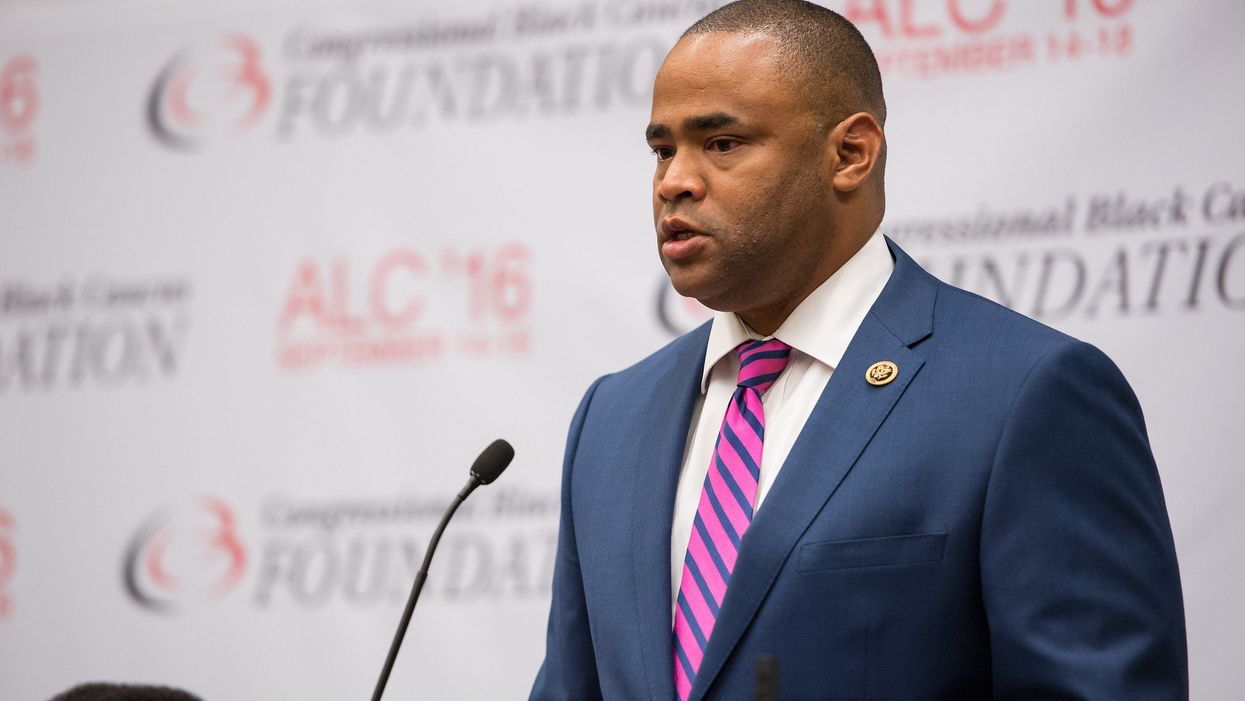Frost is president of the Association of Former Members of Congress. A Democrat, he represented Texas in the House of Representatives from 1979 to 2005.
Last month, I was honored to testify before the House Select Committee on the Modernization of Congress.
I represented the 24th District of Texas for 13 terms in the House, and for 26 years I was a member of the Rules Committee. I also served on the Budget and House Administration committees. I was Democratic Caucus chairman for four years and chaired the Caucus Rules Committee for 10.
Congress has been on my mind for much of my adult life.
Before I testified in front of the committee, I read all the statements of the previous witnesses. All were helpful but I must admit that my favorite proposal was Rep. Bennie Thompson's No Couches for Congress Act. Stopping members from sleeping in their offices would certainly modernize Congress, and improve its image among Americans.
Transparency will also improve that image, as my good friend Majority Leader Steny Hoyer noted when addressing earmarks. Hoyer was right when he said that earmarks can create bipartisan cooperation in appropriations. Importantly, he focused on transparency in any return of earmarks. American citizens must know where their money is being spent and who asked that it be spent that way.
The only way to effectively do the people's business is with transparency.
Doing that business also requires trusted, talented staffers, who are mentored by their bosses. I am proud that one of my former staffers, Marc Veasey, now represents part of my district. An intern of mine on the Rules Committee, Dennis Cardoza, eventually became a representative from California.
These two men, and hundreds of women and men working in Congress today, share important career aspirations: public service and improving our nation. Congress must identify leaders – and servants – in its staff. Then, they must be given the education and career growth needed to advance their public service careers. Congress runs the largest employer in the country, the American government. You don't run a company by failing to retain – and grow – your best and brightest.
Transparency and growing talented staff should be bipartisan.
Bipartisanship is very important for me.
I was pleased to chair the Frost-Solomon House Task Force, created to help mold the legislatures of 10 emerging Eastern and Central European democracies, following the breakup of the Soviet Union. I focused on bipartisanship in all our actions. We worked hand in hand with George H.W. Bush's State Department. No congressional delegation was sent unless it was bipartisan.
That bipartisan spirit led to great impact by our task force, creating new allies in Europe.
Without bipartisanship, we cannot accomplish great things. We can only fight.
I now serve as president of the Association of Former Members of Congress. We are the premier organization using bipartisan work by former members to foster bipartisanship in today's Congress.
I think what FMC does can be instructive to our conversation today. We are all united, Republicans and Democrats alike, by the appreciation of what a great privilege it was to represent our constituents in Congress. We understand like few others the honor of earning the trust of thousands of our fellow Americans, who chose us to be their voice in the government of our representative republic in Washington.
FMC's membership is uniquely aware that public service is a noble calling. Through FMC, there is a united, bipartisan effort to share with the next generation that our representative democracy is one that thrives when citizens participate and when engaged men and women step forward to run for office and put their ideas to the test.
FMC is an organization of more than 600 former lawmakers, from both the House and the Senate, and we are 100 percent bipartisan. We have members from all political persuasions working together energetically under our umbrella. We are proof that healthy partisanships can co-exist with collegiality and a willingness to work together. Our members do so through myriad programs, most prominently the Congress to Campus program, which sends bipartisan teams of former members to almost 40 university campuses per academic year so that we can engage the next generation in a dialogue about civic participation and public service.
This ability to work together is not solely based on the fact that we are former rather than current members of Congress, but primarily because we have a chance to get to know each other and build relationships that transcend political labels.
For many of FMC's members, there was more to be accomplished after leaving Congress. FMC is a way to encourage current lawmakers to use bipartisanship to achieve as much as they can, to avoid that regret of unfinished improvement.
In fact, FMC is collecting oral histories of dozens of members of Congress who left after last session. When it is finished, it will be donated to the Library of Congress. But, I hope we'll be able to share our record and analysis of these interviews with the Modernization Committee soon.
Hopefully that work, combined with all the other efforts of reformers, can create the better Congress we all look forward to.
Rep. Dan Lipinski testified before the committee as well. When he was a teacher, his government classes watched the Schoolhouse Rock video "How a Bill Becomes a Law." My students at George Washington University do the same. Unfortunately, I have to tell them that's not how Congress works today.
I hope the work of reformers, and the Modernization Committee, will help get us closer to the Schoolhouse Rock ideal of transparency, bipartisanship and public service and, in doing so, help prevent some of the public cynicism about our government.



















Trump & Hegseth gave Mark Kelly a huge 2028 gift